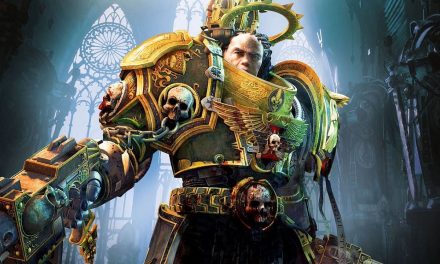Over the weekend I had the pleasure of seeing my first-ever live production of the Tragedy of Hamlet, Prince of Denmark. In all my years of studying and performing theatre, specifically Shakespeare, I had never actually seen a stage production of the classic tale, let alone one that kept the majority of the original text intact.
Hamlet is not a short play, and a full-text production can easily run nearly four hours, contrasted with the normally ninety-minute runtime of Shakespeare’s comedies. A sweeping epic about the nature of life, the purpose thereof, greed, and revenge, I think most people are generally familiar with the plot: Prince Hamlet learns that his uncle murdered the king in order to take the throne and the queen, and is bidden to exact revenge by the ghost of his father. He waxes poetic about life, is the cause of his girlfriend’s suicide, and most speaking characters end up dead. I would say it’s arguably the best-known of Shakespeare’s works, if for no other reason than so many “modern” idioms are taken straight from the text.
Having studied Shakespeare in high school and in more depth through college, I’ve always liked the story of Hamlet and the many interpretations that have been presented over the years. From Lawrence Olivier’s commanding mid-century stage and screen performance to the modern-chic take presented in 2000 with Ethan Hawke, and even adaptations such as Disney’s the Lion King, I think the story is rich, relatable, and drives at the core of the human experience. Much as MacBeth is a fantastic study in the idea of fate versus free will, and in human ambition, Hamlet gives directors and actors a very long leash to present the story they want to tell.
More specifically, there are questions that often arise about any performance of Hamlet that should be settled fairly early on in the production process, in order to have a consistent narrative. These include: just how much of Hamlet’s madness is feigned? At what point does he turn on Ophelia and did he ever really love her? Just how maniacal is Claudius? Is the ghost of the king visible or just a trick of the fog? How complicit is Gertrude, if at all? Is Hamlet more outraged at the murder or the stealing of his mother?
I can’t count the number of times I’ve seen film adaptations of the play, or how different directors and actors have addressed the above questions. While a strict reading of the full text brings a fair amount of certainty (particularly in relation to Claudius and Gertrude), some things are still left to interpretation, and sometimes a director may want to tell a slightly different story. Perhaps instead of wholly acting mad, seeing his dead father really did crack Hamlet’s mind and he’s entirely off his rocker. Perhaps he’s sharing his self-loathing with Ophelia and it comes off as malice, instead of counsel to escape the danger of what was soon to befall the castle.
“I’m sorry to have offended you.”
How do you interpret the above line? Could you imagine other ways it could have been said or meant? What if emphasis were placed on a different word? Is the statement sarcastic, deflective, explanatory? There’s much more to the spirit of a text than the words placed down. So with Hamlet each director must make careful decisions and weigh them against their vision for what the play means. In this regard sometimes whole speeches or conversations are cut or altered slightly in order to reframe the narrative. Perhaps the audience never hears Claudius’ asides, which may put him in a less malevolent light. Perhaps Hamlet omits any reference to feigning his malady. Perhaps, perhaps, perhaps.
Something my wife said to me at intermission really stuck with me, in that she was so caught up in trying to follow each line that she often missed the point of a scene or jokes therein. I posited that we as a culture are far more familiar with the story than the original audience would have been, and also on the whole more educated and media-savvy. Shakespeare often begins by having a character describe what they’re going to do, then doing it, then explaining what they just did. “I’m going to hide behind that curtain and listen in on this conversation” Polonius may say to the audience, followed by “I’m going to hide behind this curtain and listen in” to another character, and then finish the scene with “I can’t believe I heard X while I was hiding behind the curtain” to really drive the point home.
I’m not qualified to go into the limitations or inventions of historical theatre performances, but I believe that the repetition was thought necessary to ensure that everyone in the audience, from the groundlings in the front to the nobility in the wings, saw not only what was happening but also understood the reasons why. All things evolve over time, and our ability to consume media as a species has as well, with the increase in technology available to us. Hundreds of years ago someone may only have heard their favorite piece of music twice in their life, played on a big stage far from home. These days we can store thousands of songs on a device that fits into our pocket, and often can’t find anything we want to listen to.
The reason I feel it’s important to bring this up is because we are exposed to so much more than playgoers of the past. Our lives are filled with stories where there is intrigue, danger, and suspicion, far out of pace with (hopefully) what we deal with on a day-to-day basis. I believe this allows us to pick up on those kinds of elements that may have been lost on those less familiar with complicated stories than we ourselves are. My wife was trying to spend time studying, internalizing, every single line that she lost the forest for the trees. I think she enjoyed the second half more than the first, not only because most of the exposition was out of the way, but also because she was able to relax a bit more and enjoy a wider view, knowing that even those of us who were better-schooled in Shakespeare weren’t catching every fast-paced line.
Though the play is ostensibly about a series of bloody murders that change the political landscape of Denmark, there is plenty of quick-witted banter so indicative of the era. Hamlet and a grave-digger verbally spar about the nature of who “owns” a grave, the county players have quite a bit of stage-time even before their performance-within-a-performance, and even Hamlet and Horatio exchange some jabs. In many of the interpretations I’ve seen most of these bits are cut out, focusing on the core tragedy of the play rather than including entertainment for all.
Perhaps that’s an aspect of our changed media landscape as well – we have discrete categories for things that entertain us, and often they correspond to a mood or feeling in which we want to experience them. Less so in Shakespeare’s time where public entertainment was a less on-demand style. The tragedies largely include moments of levity, even the overwhelmingly-bloody Titus Andronicus. More than a simple joke here or there or a brief reprieve from the pain and suffering displayed in the rest of the piece, the breaks in action serve a few different purposes.
One, they allow the audience to see how fully-fleshed the protagonist is. Hamlet may be a sullen and morose malcontent, but we rarely get a glimpse of who and how else he is, removed from the pain of his father’s usurping. His mother makes reference to it, but only in the moments out and apart from the court, such as with the grave-digger or when talking with a messenger sent to ask after him, do we see the benefits of his education and upbringing, of the intelligence that lay therein. We don’t even see much of this in his interactions with Ophelia, because we almost never see them truly alone, and then never removed from the tragedy of the setting.
Perhaps this is just my modern sensibility but I think I personally prefer the productions where Hamlet is a focused, directed tragedy. Though often maligned by critics and purists, I genuinely enjoy the modern version from 2000 referenced above, where Ethan Hawke plays Hamlet like a broken puppet, actively choosing to pull his own strings, and Sam Shepard plays a fantastic Hamlet Senior, able to convey great meaning in a simple look, obliviating the need for long bouts of dialogue that explain his motivation or intent. Diane Verona’s Gertrude is also phenomenal, showing a distinct and intense love for her wayward son, another interpretation which can vary between presentations.
This wouldn’t be a true examination of Hamlet if I didn’t talk about the “to be or not to be” speech, which seems almost obligatory if for its status as a cultural keystone as anything else. As I’ve said, I’m just a lay person with an interest in Shakespeare and far from an authority on the subject, but I don’t believe it takes much to dissect the whole of this most famous monologue, so long as one goes beyond the opening few lines.
Put simply, his speech illuminates a core tenet of the play: whether it is a better option to face difficulty or shy away from it, bearing the cost of making either choice. The speech spells it out, actually, decrying that fear of the unknown (in this case, what dreams may pervade the sleep of death) makes cowards of everyone, by and large choosing to suffer “the slings and arrows of outrageous fortune” rather than make a meaningful change. While the change doesn’t necessarily mean suicide, in the context of Hamlet its subtext is pretty much just text.
Hamlet is cautioned by the ghost of his father to not take any vengeance upon his mother, who he finds innocent in all this, but even after Hamlet promises to his father, and then to the audience, that he’ll draw no blade on her, he goes and threatens just that, to the point where his dead father has to return again in order to stop him, denouncing his wanton and rampant thirst for vengeance.
The ideas of blame and responsibility are also touched upon, most notably in a discussion between Laertes and Hamlet, where Hamlet professes that his prior ranting was that of madness and not himself, thus he hoped his friend could forgive him, as it was not he who spoke so hotly. This serves in direct contrast to Claudius, who was very methodical in his murder of the king and wedding of the queen, with no potential for “it was in the heat of the moment/I lost my senses” to be a defense.
It is said that by and large Shakespeare’s writing ends with one of two conclusions: either everyone’s married, or everyone’s dead. Unsurprisingly, Hamlet firmly falls in the latter category. I’m sure pages and pages of text and analysis have covered the meaning of each character’s demise before, but here’s my take on the ending of this much-lauded play:
- Hamlet:
- Slain by the touch of a poisoned rapier, his death is the direct result of his murder of Polonius, driving Ophelia to suicide, and the machinations of Claudius. He has accomplished his task, that of revenge, but suffers greatly for it.
- Laertes:
- Slain by the touch of his own poisoned rapier, he laments the use of poison and trickery in getting his own revenge, much preferring to having won on his own terms rather than by duplicity and subterfuge. He provides the final piece of evidence against Claudius, naming him as the murderer of Gertrude, Hamlet, and Laertes himself, giving all reason to see why Hamlet’s strike at the king was warranted and in some sense, “just.”
- Gertrude:
- In some productions she dies to save her son, while in others she is an innocent casualty in the war between Claudius and Hamlet. I prefer to think that she has been swayed by Hamlet and has started to see the dark side of Claudius, and pieces together what the king is attempting. This is a great moment in the 2000 Hamlet because she takes the drink, full well knowing it will mean her death. Alternatively, her death could further the notion that vengeance brings ruin on all, even (or particularly) on the innocent, already suggested by Ophelia’s suicide.
- Claudius:
- In some productions Claudius is just power-mad, doing what he thinks is necessary to obtain and keep the highest office in the land. In others he’s actively malicious, seeing threats in every corner and lashing out at everyone he holds dear. In the end Claudius is slain by his own thirst for power, with Hamlet holding the instrument of vengeance – the blade Claudius himself had poisoned for the duel with Laertes. He is directly responsible for the death of the old king, the queen, Hamlet, and Laertes.
- Ophelia:
- Though she dies before the finale (sorry for the spoiler), I believe her death is strictly attributable to two factors: Hamlet’s inconstant love and his sudden about-face in regards to her, and Polonius’ utter lack of concern for his daughter when he can use her as a political pawn. As she sits, weeping and broken after her final conversation with the prince, her father waves her off, saying he heard the whole thing and she didn’t need to recap it for him. Utterly dismissive of the girl’s pain, it’s very clear why Ophelia “went mad” with grief. The flowers she gives to the court are filled with more meaning for the nobility of Shakespeare’s day than modern audiences, because there was an entire courtly “flower language” that spoke volumes even when words couldn’t. The director’s only personal note at the start of the playbill was to define the meaning of the flowers she hands out, and how that her choices were deeply meaningful and thought-out, even in the moments before her demise.
So what is there left to say? The Tragedy of Hamlet, Prince of Denmark is rightly a classic, and I wish more were increasingly familiar with its intricacies. That said, I also think there is a great deal of value stemming from directoral interpretations of the text, and the decision to remove or interject certain lines or scenes can leave a lasting impression upon the audience about the meaning of the show. Does the director include the finale with Fortinbras at the gates, delivering a hopeful message for the court, or instead leave off with Horatio’s somber elegy over the corpse of his best friend?
I’m very glad I had the opportunity to see a nearly full-length performance of Hamlet, and it has reignited the desire in me to study other interpretations, both new and those with which I’m familiar.
Header image of the Spreckels performing arts center in Rohnert Park, CA, where Hamlet is currently running for another week.





![[HRM] Solaris](https://poeticsonline.net/wp-content/uploads/2018/10/img_6242-1-440x190.png)








